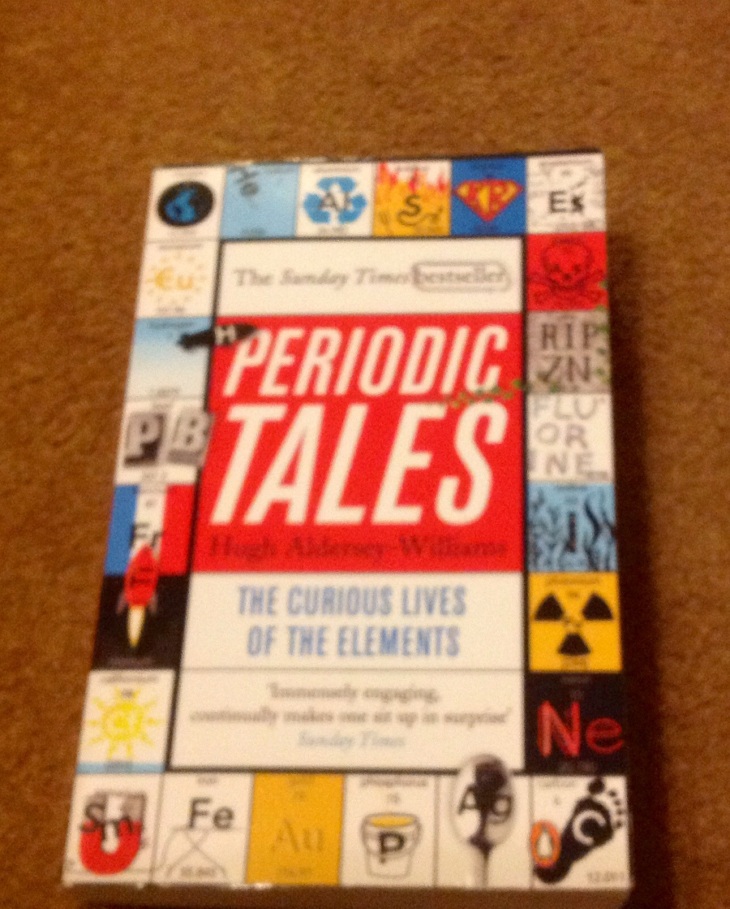On a periodic basis a general, but not overwhelming, desire to self-improve will coincide with a vague interest in a topic and the act of spotting an interesting looking book. Recently, I experienced just such a perfect alignment and picked up this popular science book on the chemical elements.
It has excerpts of glowing reviews from some pretty heavyweight supporters such as the Sunday Times, Nature, The Observer and, er, Lauren Laverne. All I would say is don’t always believe the reviews, even this one,
The book is organised into sections entitled Power, Fire, Craft, Beauty and Earth to reflect the essential nature of some of the elements. It even has pictures to entice even the most ardent recidivist anti-intellectual troglodyte. I don’t think small black and white pictures are awfully helpful or attractive in paperbacks but I suppose it does allow them to be included near the relevant text rather than in a separate section
For each element on which he writes, Hugh Aldersey-Williams flicks between history, religion, alchemy, experiments, the significance of the element over time and its discoverer. Whilst parts of this are very interesting, some are less so. For example, he obviously loves to carry out experiments as the early chemists or alchemists did and describes them in some detail. I suspect these were more fun to carry out than they are to read. For me it was like reading a lengthy description of how a mechanic had repaired the exhaust on my car; nice to know that it’s been done but not really exciting in the description.
There is much here that is fascinating such as the theory that the tomb of the first Chinese Emperor contained a scale replica of his empire complete with miniature rivers flowing with mercury, Agatha Christie’s use of Thallium in a novel that appears to have inspired would be murderers and Lavoisier (who named Oxygen) being sent tor the guillotine in revolutionary France. The book also served to remind me what a thoroughly reprehensible character the chemist Fritz Haber was. His interest in developing the use of gas in the First World War was far more sinister than a purely scientific endeavour. The world would have been a better place without him.
Whilst there are some very interesting parts it is quite hit and miss and a very good section could be followed unreasonably quickly by something that is very tedious and this seems to be the result of the magpie pick and mix approach which throws in anything and everything linked to a particular element. Given the logical clarity and beauty of Mendeleev’s periodic table it was surprising that the book was so seemingly random and jarring. It was a struggle to maintain an interest until the end. 
